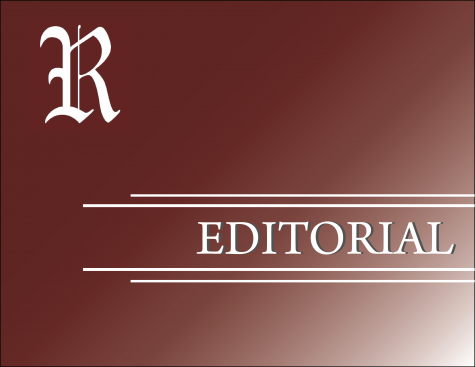Editorial: Apathy Out, Activism In at Fordham
December 3, 2014

By The Editorial Board
Looking back on the 96th volume of The Fordham Ram, which we began in January, there was not a single, defining story that stood out among the rest as the highlight of the volume. What became clear as we flipped through old issues, however, was an exciting trend on campus — an upswing in student activism and engagement with issues both on and off campus.
Throughout the year, when students were met with changes on campus of which they disapproved, they voiced their opinions and forced administrators to listen. This was especially apparent with the closing of the old gym, which was met with outrage from the student body.Working through United Student Government (USG), students demanded accommodations to meet the high demand in the wake of the old gym’s closing, with which the administration complied by providing more equipment. Students also voiced their disapproval with Sodexo over the chicken tender downgrade, causing the company to return the five and fries to meal-swipe status.
Open discussion around serious student life issues, which had previously received little attention, also became prevalent this year as well. Women’s Empowerment, which gained more traction as well as official club status this year, teamed up with USG to call upon Dean Rodgers to answer questions about the university’s handling of sexual assault cases and to discuss the prevalence of sexual violence on campus. Students for Sex and Gender Equality and Safety (SAGES) opened a dialogue about the availability of contraception on campus with its condom drops during homecoming weekend and its protests on both the Rose Hill and Lincoln Center campuses. The administration has been open to discussing these issues, and has brought issues of its own to the table.
Rodgers, for example, opened the discussion of binge drinking culture on campus, saying, “We’re going to lose somebody.” Other groups, such as Fordham Students Against Inequality and Racism (FAIR), which aims to address issues of racism and discrimination on campus, have started with sustained and serious dialogue, and will likely be calling for discussion with the administration soon.This spirit of activism has begun to reshape conversation around hot button issues on campus, and students have begun discussing and organizing around off-campus justice issues as well. Students for Environmental Awareness and Justice brought dozens of students to the People’s Climate March earlier this semester to join hundreds of thousands of protesters demanding environmental justice for all. A community organizing group within the Dorothy Day Center teamed up with several departments and student groups to hold a vigil for victims of police brutality on the McGinley lawn this fall, and the Stay Woke: Write Yourself In event invited students to write about their personal experiences of racism.
Meanwhile, the College Democrats and College Republicans have emphasized their amicable relations and worked as partners to encourage student involvement in politics. Keeping with tradition, the groups invited thought and dialogue provoking speakers to campus — Ezra Klein for the Democrats and Kimberly Strassel for the Republicans. They have also co-programmed with other groups and offices on campus to host new events such as the ASILI/ College Republican discussion of race and politics and Fr. Greg Boyle’s presentation on Homeboy Industries’ gang ministry. The Fordham Political Review gained popularity this year, and politically-active students on campus created a petition to host a gubernatorial debate at Fordham further illustrating an increase from prior years in political activity and interest on campus.
We at The Fordham Ram are excited about the growing trend of activism on campus. Conversations that did not take place in the past are finally beginning to happen among students, between students and the administration and between students and the greater community.
We applaud the actions that students have taken to improve our school, and we hope that some of the meaningful discussions that are occurring will soon turn into actions. We anticipate that this action around student life, justice and political issues will continue into our next volume, and we look forward to reporting on these discussions, protests, petitions and events every step of the way



If you want a picture to show with your comment, go get a gravatar.